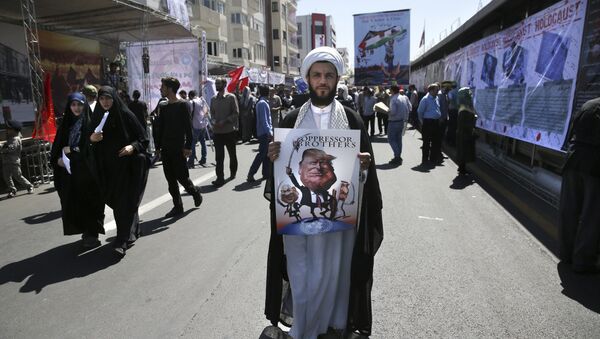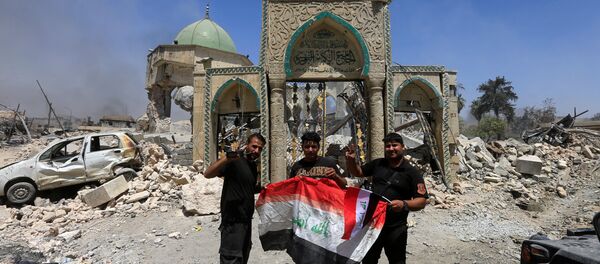They feared that the proposed nationalization of oilfields owned by the company would lead to a domino effect in the Middle East, where some 60 percent of the world's known oilfields were located.
The coup consolidated the power of the Shah monarchy, which ruled Iran until the 1979 Islamic Revolution. Since then, Tehran has staunchly rejected any form of foreign intervention in its affairs.
Last month, US Secretary of State Rex Tillerson angered Tehran with a public admission to the House Foreign Affairs Committee that the US is still pursing regime change there.
"Our policy towards Iran is to push back on this hegemony, contain their ability to develop obviously nuclear weapons, and to work toward support of those elements inside of Iran that would lead to a peaceful transition of that government," Tillerson said.
Iran said the remarks were a violation of international law and the UN charter, and lodged a diplomatic protest.
"First of all, after the monarchical regime was defeated in 1979 Iran became an Islamic republic and democratic institutions developed very quickly; they became the mainstay of Iranian society. That is, now the people decide their own fate. Yes, they can't choose high-ranking officials directly, but they can nevertheless express their consent or discontent, and this plays a paramount role in political life. Therefore, it isn't worth expecting an interventionist coup in a society where power really belongs to the people," Mojtaba explained.
"The second very important aspect is the relationship between Iran and the United States. In that period [1953], the court officials who opposed the government of Dr. Mosaddegh had close ties with the US."
"But Iranian politicians and parliamentarians today don't have any ties to the Americans. Therefore, given the lack of connections and levers of pressure on Iran's internal political life, the likelihood that the Americans will be able to implement this plan – to change the government in Iran – is extremely small. However, let's not forget that the Americans didn't carry out the 1953 coup on their own. Their allies were involved – other foreign forces which provided the Americans with powerful support."




